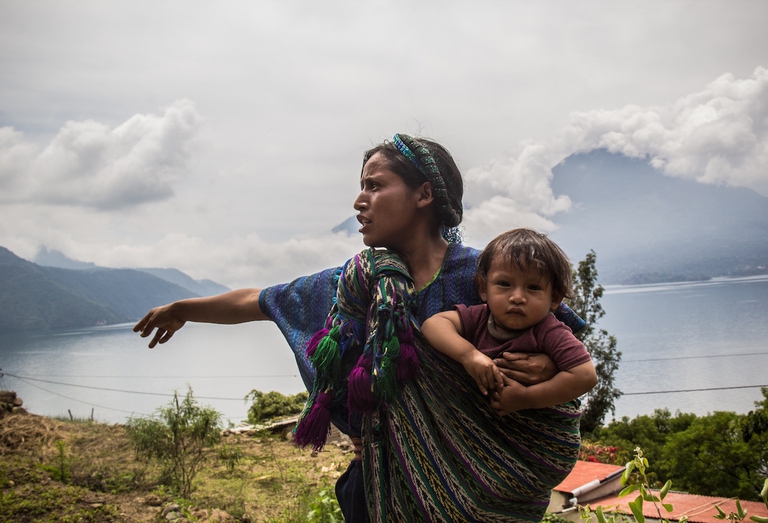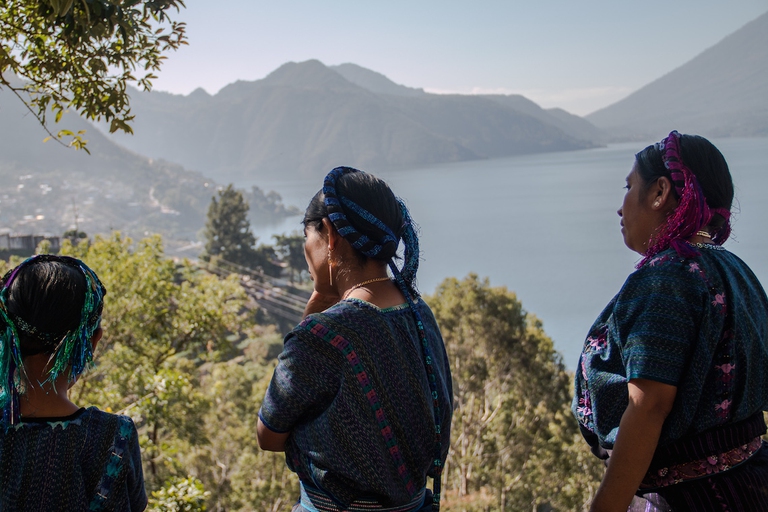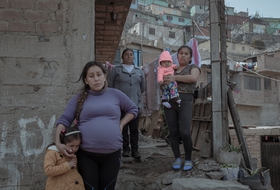
A special report from the Yuqui territory delves deep into the dreams, challenges, joys and sadness of one of Bolivia’s most vulnerable indigenous groups.
The Guatemalan Supreme Court found defendants Colonel Esteelmer Reyes Girón and former Military Commissioner Heriberto Veldez Asig guilty. They were accused of sexual violence, and sexual and domestic slavery against indigenous Q’echís women from the Sepur Zarco community in eastern Guatemala during the civil war of the 1980s. They were sentenced to 120 and 240 years
The Guatemalan Supreme Court found defendants Colonel Esteelmer Reyes Girón and former Military Commissioner Heriberto Veldez Asig guilty. They were accused of sexual violence, and sexual and domestic slavery against indigenous Q’echís women from the Sepur Zarco community in eastern Guatemala during the civil war of the 1980s. They were sentenced to 120 and 240 years of imprisonment respectively. The sentence included an additional thirty years in prison for both defendants for crimes against humanity, a big step towards recognizing the importance of punishing gender-based violence. This was the first time wartime sexual violence was tried in the country, as well as the first time a national court ruled in a domestic and sexual slavery case.
The criminal lawsuit was officially presented in September 2011 and a year later the court proceeded with anticipated evidence hearings, including the statements of fifteen Q’echís women and five Q’echís men who witnessed the events. One of the victims passed away a few months after giving testimony. The trial began on the 1st of February of this year and was broadcast live online.
The court announced that besides facing imprisonment, the perpetrators will have to pay reparations. Veldez Asig and Reyes Girón have been ordered to pay 250,000 quetzales (around 30,000 dollars) and 500,000 quetzales (over 60,000 dollars) respectively to each victim, with overall reparations amounting to over 1 million dollars, reports Reuters.
“We find the treatment of the women of Sepur Zarco to have been completely humiliating and degrading,” said presiding Judge Yasmin Barrios during the announcement the verdict of the three-judge tribunal. Systematic rapes and other kinds of violence were not only gender crimes, but also constituted “moral and physical attack against the community”, continued Judge Barrios. “Guatemala shows us that sexual abuse in contexts of war is not ‘boys being boys’; it is a weapon of war and it must be punished”, commented Jo-Marie Burt, a trial observer with the Washington Office for Latin America, on Twitter.
#Guatemala shows us that sexual abuse in contexts of war is not “boys being boys”; it is a weapon of war and it must be punished #SepurZarco
— Jo-Marie Burt (@jomaburt) February 26, 2016
Fifteen peasants from Izabal and Alta Verapaz were illegally detained and made to disappear at the hands of the army in 1981 and 1982, in the middle of a civil war that swept Guatemala between 1960 and 1996. They had been demanding legal titles for the land they cultivated. To this day, the remains of only two of the men have been found.
Some time after the men were captured the army returned to their village. They burned crops and houses, destroying and looting everything in sight. The military established a base near Sepur Zarco and forced the missing peasants’ wives to perform domestic work. Every two, three days they had to suffer twelve-hour “shifts” in the post during which they were regularly raped. The harassment eventually ended when the post was closed in 1988, explains Gabriela Rivera, lawyer at Mujeres Transformando el Mundo (MTM, Women Transforming the World), the organization that brought the past atrocities to light.
Broadcast live streaming video on Ustream
Four of those fifteen women managed to escape, hiding in the mountains for years. They lived in poor conditions, fearing that the military would find them. Their children suffered malnutrition, disease and psychological disorders. “One of the women fled with her four children, and returned six years later with only one. Another fled with three children, and came back alone,” says Rivera.
In 2009, MTM began cooperating with Q’echís women and a year later, along with other survivors of sexual violence, they participated in a mock trial, the “Court of Conscience on Sexual Violence against Women During the Armed Conflict”. It aimed to draw attention to the silenced dimension of the civil war. This was the first time Guatemalan women could talk openly about past abuses, and be heard.
Two men were arrested in June 2014. Reyes Girón faced charges of crimes against humanity for sexual violence and domestic and sexual slavery, as well as the assassination of Dominga Coc and her two daughters. Valdéz Asij was accused of the crimes against humanity of sexual violence and causing forced disappearances.
“It is an important goal that a juridical truth begins to transcend the truth of the victim. Guatemala dignifies itself in the moment in which it begins to try sexual violations as part of crimes that offend human consciousness”, commented Rigoberta Menchú, Guatemalan Nobel Peace Prize laureate.
The sexual slavery trial in Guatemala has attracted attention worldwide, as it is an important step towards state accountability now that its civil war has ended. It indicates a major commitment to bringing justice in one of the poorest and most inequitable countries in the Western hemisphere. In addition, it explicitly addresses the issue of ethnic and gender inequalities, which is important considering that over 80% of the armed conflict’s 200,000 causalities were of ethnic Maya origin.
Siamo anche su WhatsApp. Segui il canale ufficiale LifeGate per restare aggiornata, aggiornato sulle ultime notizie e sulle nostre attività.
![]()
Quest'opera è distribuita con Licenza Creative Commons Attribuzione - Non commerciale - Non opere derivate 4.0 Internazionale.
A special report from the Yuqui territory delves deep into the dreams, challenges, joys and sadness of one of Bolivia’s most vulnerable indigenous groups.
One in three women have suffered physical or sexual violence. With contributions from Europe, Africa, Asia and Latin America, we look at how this shadow pandemic affects every corner of the world.
The Istanbul Convention against gender-based and domestic violence marks its tenth anniversary. We look at what it is, who its signatories are, and what the future might hold.
European Commission President Ursula von der Leyen reminded us of the gravity of violence against women around the world, and of the Istanbul Convention’s utmost importance.
The Yuqui people of the Bolivian Amazon fight not only to survive in the face of settlers, logging and Covid-19, but to preserve their culture and identity.
President Erdoğan has pulled Turkey out of the Istanbul Convention, key in the fight against gender violence, claiming that it favours the LGBT community rather than family values.
Jair Bolsonaro is accused of crimes against humanity for persecuting indigenous Brazilians and destroying the Amazon. We speak to William Bourdon and Charly Salkazanov, the lawyers bringing the case before the ICC.
Activists hail the decision not to hold the 2023 World Anthropology Congress at a controversial Indian school for tribal children as originally planned.
Violence against women in Peru has increased as a result of Covid-19 lockdowns. 14,912 people were reported missing from January to November 2020, more than half of them minors and 64 per cent women. People have been confined to their homes for months, many forced to endure poor physical, economic and social conditions. A situation that









